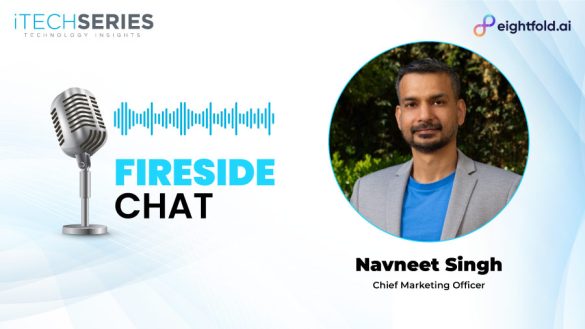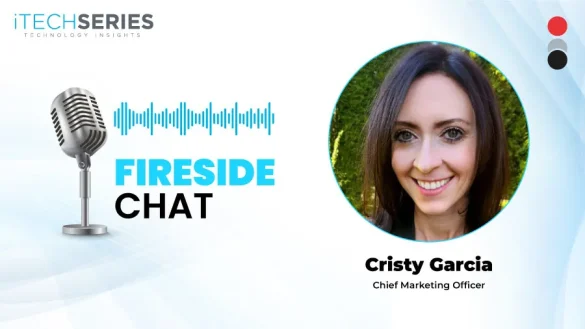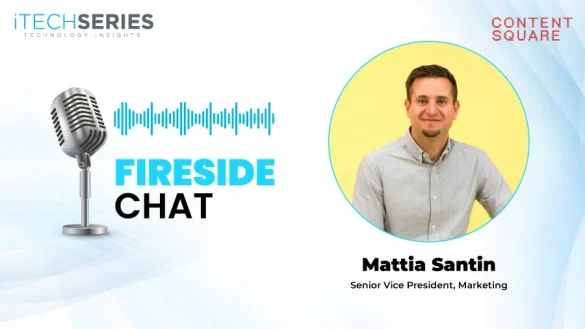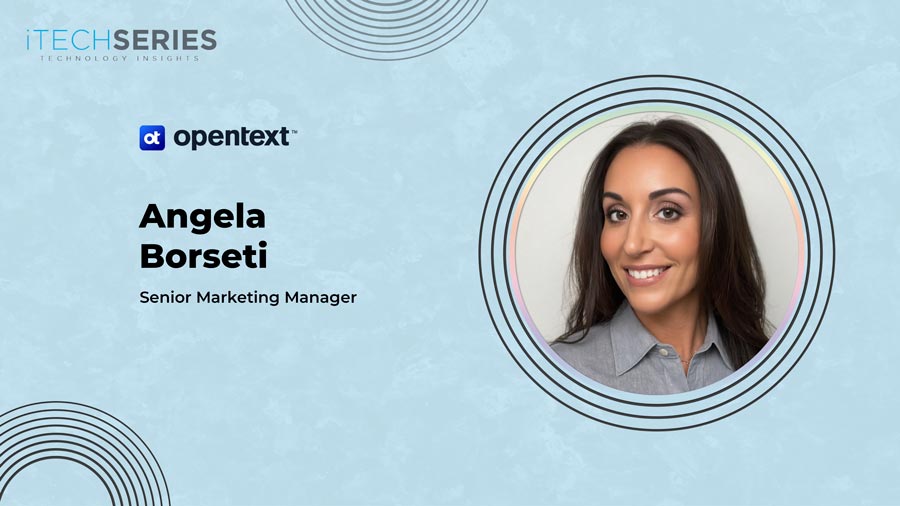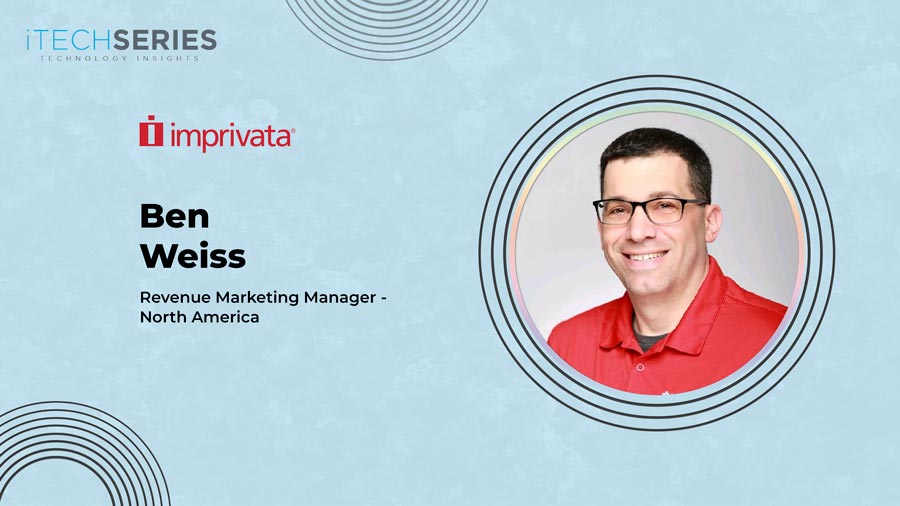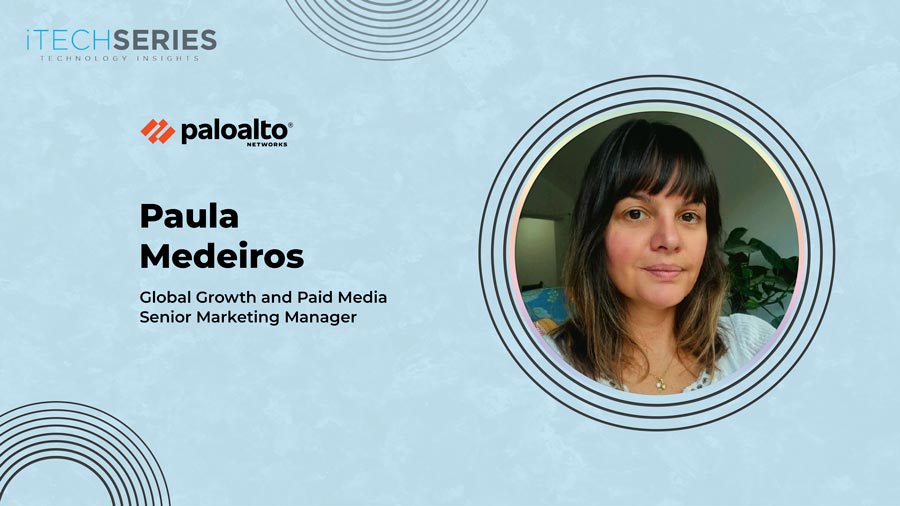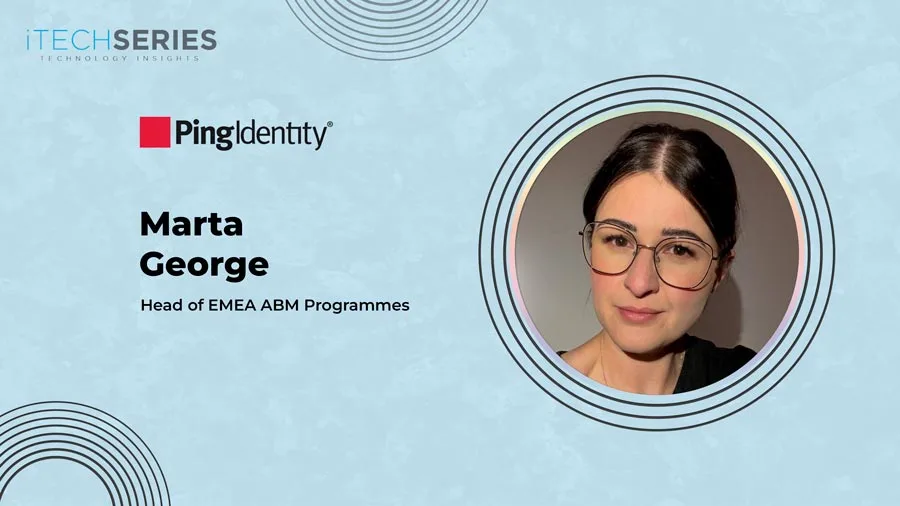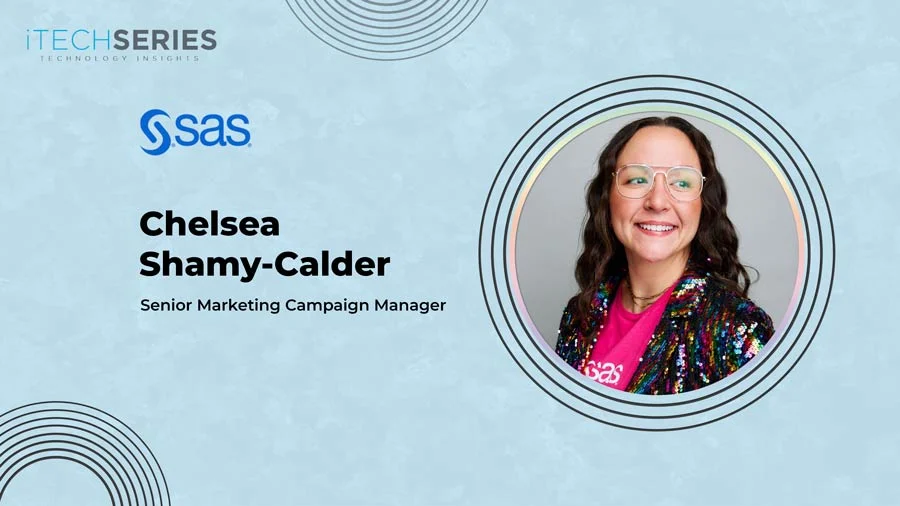Christiane Greilach, Global Senior Marketing Manager at Autodesk, shares her journey from operations and strategic planning to leading brand innovation, digital marketing, and creative strategy across both B2B and B2C. She explores the power of data-driven storytelling, the evolving role of AI in marketing, brand building, and insight-led audience connections at scale.
Welcome to the interview series, Christiane. Could you tell us more about yourself and your marketing journey?
I’ve been moving through different roles and organizations before starting my marketing journey. I guess this was beneficial to gain a broader view of different functions, their objectives, and their needs. I “visited” Sales Operations, Business Process Engineering, Finance, and Strategic Planning in large Fortune companies such as HP and Agilent Technologies after my first jobs at a couple of radio stations, publishers, and advertising producers. I am living and working in Spain on the shores of the Mediterranean, but I was born and raised in Germany and am a frequent traveller (mainly due to business).
As a marketer, I am pleased to cite one of my direct managers who called me a 360-degree marketer since I had the privilege of working in a diverse set of marketing functions, from brand innovation (supporting other brands’ growth by personalizing their campaigns), marketing communications, digital marketing, social media, content, creative development, and audience marketing. I worked deep in the weeds as an individual contributor and in director/leadership roles, both in B2B & B2C environments.
I am proud to say that I led HP Graphic Arts’ activation at Cannes Lions 2019 (the largest global festival of creativity & marketing) and Wallbox’s (a unicorn scale-up from Spain) advertising campaign for Wallbox’s IPO on Wall Street (probably a once-in-a-lifetime opportunity).
How do you use storytelling to create deeper connections with your audience and drive engagement across campaigns?
Storytelling might sound like an overused term but it is crucial to effectively communicate with your audiences. I believe in the power of “co-creation”—in” other words, a bidirectional story-creation strategy, driven by insights & data. The story needs to be consistent but adapted to segmented audiences across the different stages of the customer journey, content-, format-, and channel-wise.
At one of my previous companies, we drove a large-scale social media listening exercise to gain granular insights on the motivational drivers of consumers across Gen Z, X, Y, and Boomers to be able to build relevant stories around the product/solution.
At Autodesk, I conducted qualitative and quantitative sentiment analysis in EMEA and North America to understand the pain points and desires of 3 different audiences to feed more specific thought leadership content, or variations of existing content (both online, such as interviews, podcasts, publications, and ads, and offline, via specific event experiences) that helped shape a better brand narrative specific to these audiences with the final goal of improving positive sentiment via on- and offline storytelling.
At Creadits (a creative agency), we worked with a variety of different industries to accelerate app downloads, with UGC (user-generated content) being one of the most effective formats for BOFU purposes. One size doesn’t fit all should always be our guiding principle.
“Storytelling might sound like an overused term, but it is crucial to effectively communicate with your audiences. I believe in the power of ‘co-creation’—in other words, a bidirectional story-creation strategy, driven by insights & data.”
How do you strike a balance between long-term brand-building efforts and the immediate demands of lead generation?
Both can’t be decoupled and should be pursued. A young start-up could probably generate a bunch of leads by applying paid digital marketing strategies and, with that, show short-term results. However, the ROMI could be jeopardized by time. And to deliver inbound leads, you need to focus on organic efforts, which not only take longer (and usually help drive better conversion) but also require brand building. You would not want to miss your chance to build brand love instead of risking a debate around product features and price (as there is always a cheaper offer unless your product is absolute blue sky).
How do you see AI and human creativity working together in storytelling and the development of marketing campaigns?
We’ve had debates around the impact of AI on a set of different creative industries (graphic design, architecture, entertainment) to uncover the challenges and the opportunities of AI, and of course, marketing is not an exception. I believe that AI can enhance human creativity, by removing, or at least reducing, repetitive and time-consuming tasks or by generating lots of different proposals in such a short time frame; I tend to believe that it serves to free up mental space to let the creative juices flow.
Amid all the uncertainty, I’m certain that AI is here to stay and will redefine current roles to enable productivity gains. Creating the appropriate prompts will be (or already is) a skill instead of doing stuff completely on our own. I think that AI works very well for an initial draft of ad copy, ad variations/optimization, or long-form content draft (there are AI-written articles out there in the magazines, and you can still spot the difference). When it comes to design, I’ve heard that AI is also a useful tool for initial (again, initial) storyboarding (for a longer ad), but it’s not replacing the final human touch to create an amazing story (either visual or written). I do not know what the future brings, and we should add here a shy “not yet,” but I hope that AI will continuously enhance human creativity instead of making it obsolete.
Where do you see marketing’s role having evolved the most within the broader go-to-market-driven setup?
I think that marketing has a crucial role to play in the broader setup. How would we actually go to market without a marketing strategy? I believe it has been evolving, but I obviously cannot speak for companies I ignore. I feel that marketing has been viewed sometimes as a sales assistant in the past to support XYZ events or initiatives based on a particular perception. Based on my experience, no organization can or should work in isolation, and marketing should be considered a true partner, enabler, and expert on the customer journey. Marketing brings the insights & data and translates it into scalable, granular, and tailored strategies and tactics that support conversion and sales growth.
What key metrics do you rely on to measure the effectiveness of your marketing initiatives beyond just leads?
It depends on the role and the objective of the role, as marketing is so broad! Does the role support upper funnel, or is it geared towards e-commerce conversion? Is it about branding or lead gen? Here are a few KPIs I’ve been measuring based on the different needs & business objectives in different companies (a mix of B2C & B2B, hardware & SaaS):
- Awareness AND loyalty/retention: brand sentiment
- Awareness/reach: views, media mentions/earned media, SoV, social media engagement, ACV
- Interest/consideration: quality website traffic (incl. clicks, time on page, scroll rate, bounce rate), both paid and organic traffic. And of course, the number of leads or quality contacts
- Conversion: e-commerce conversion rate, marketing-sourced lead conversion
- Retention: churn rate/renewals, MAU, ACV.
How do you approach building marketing strategies that integrate both innovation and long-term brand value?
That’s a great question! When I worked at HP, we evangelized personalized storytelling at scale, enabled by HP’s technology for brands and creative agencies. This approach wouldn’t jeopardize brand equity and value but add an additional, innovative layer of personalization that speaks directly to the consumer. This does not change the brand’s archetype or mission; it basically enhances it. To share an example, but there are many: A renowned beverage brand celebrated their 300 years of history by bringing 3 million personalized (and recycled) water bottles to the market. Consumers would immediately recognize the brand and feel attracted by the artistic and unique look of each bottle. This isn’t just a nice hype on the shelves, but increased market shares and propelled earned media since the product became highly shareable on social media.
Beyond this real-life example, I believe that long-term brand value should never eliminate innovation. In fact, innovation is key to ensuring brand value as generations (and their needs) are changing. A company that has existed for more than 80 years and still grows needs to constantly innovate to be able to keep their brand value. I’d like to cite Marshall Goldsmith’s “What Got You Here Won’t Get You There.”
What advice would you offer aspiring marketers on staying relevant and effective in a rapidly evolving digital landscape?
The good news is that most of the aspiring marketers are digital natives; they are fluent in tools that for older generations can seem scary. We’ve also found that Gen Z particularly seems less worried about AI than “others.” My advice (which I’m trying to apply as much as I can) is to become a lifelong learner: be open, stay curious, and embrace change. Consider headwinds or challenges first of all an opportunity you might leverage. Don’t shy away from things you’ve never heard about or be afraid of failure: I was once told by one of my mentors that in order to grow into the next position, you should apply the 50%/50% rule; you know 50% of the new job, and you will learn the other 50%.
About Christiane Greilach
Christiane Greilach is a creative, strategic marketing leader with over 20 years of experience across Fortune 100 tech firms, unicorn startups, and creative agencies. Known as a 360° marketer, she blends brand innovation, digital strategy, and data-driven storytelling across B2B and B2C. With postgraduate degrees in storytelling, publishing, and digital leadership, she has led major campaigns—from HP’s Cannes Lions activation to Wallbox’s IPO debut—bringing audience insight and impact to every touchpoint.


